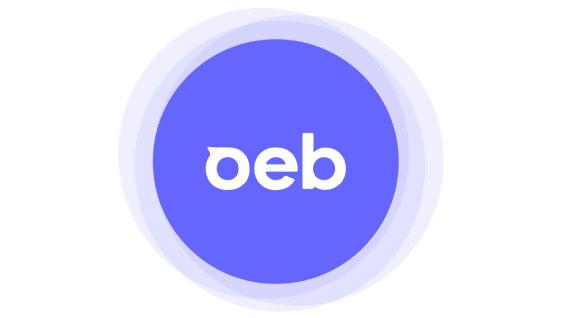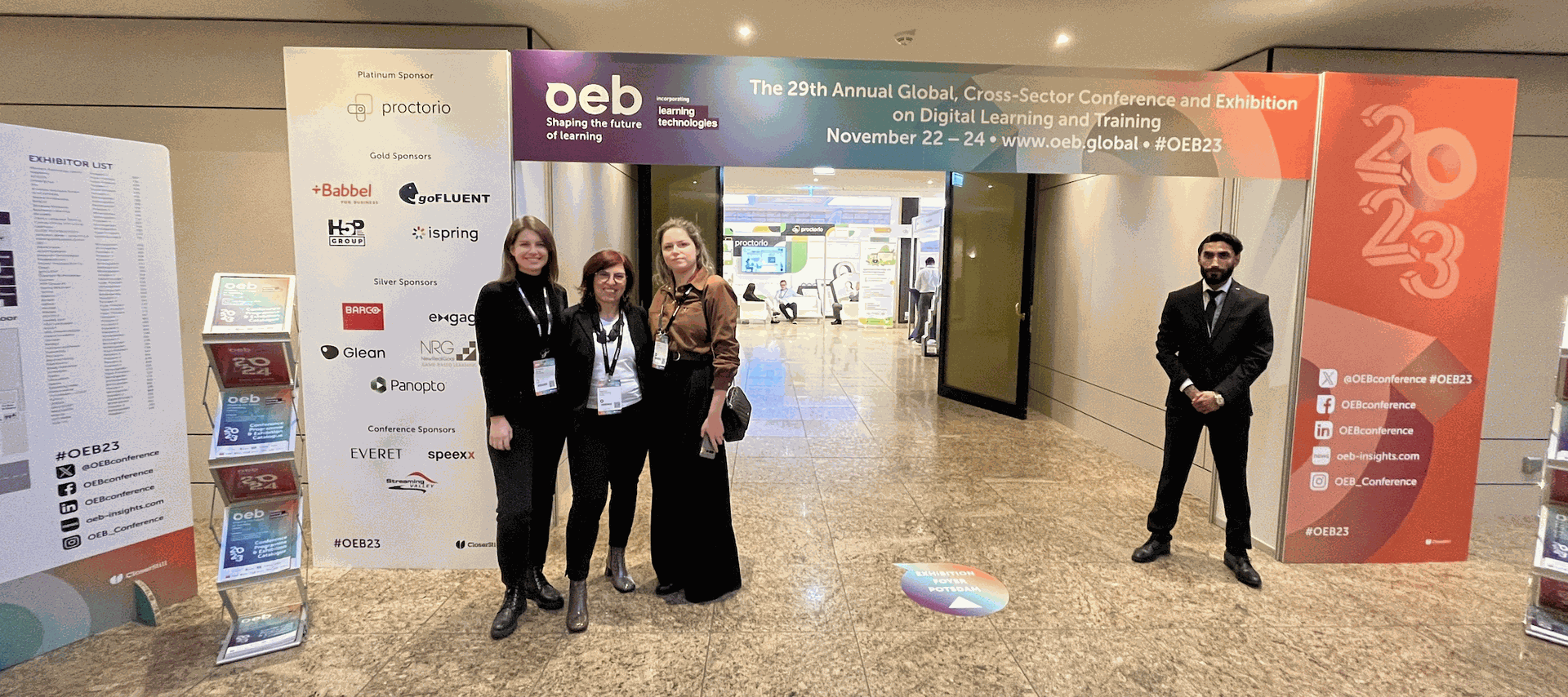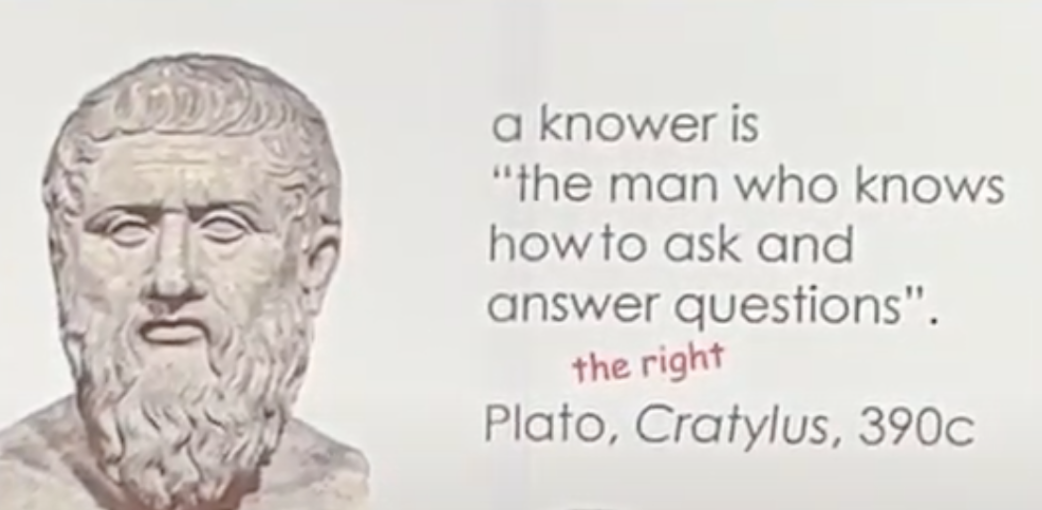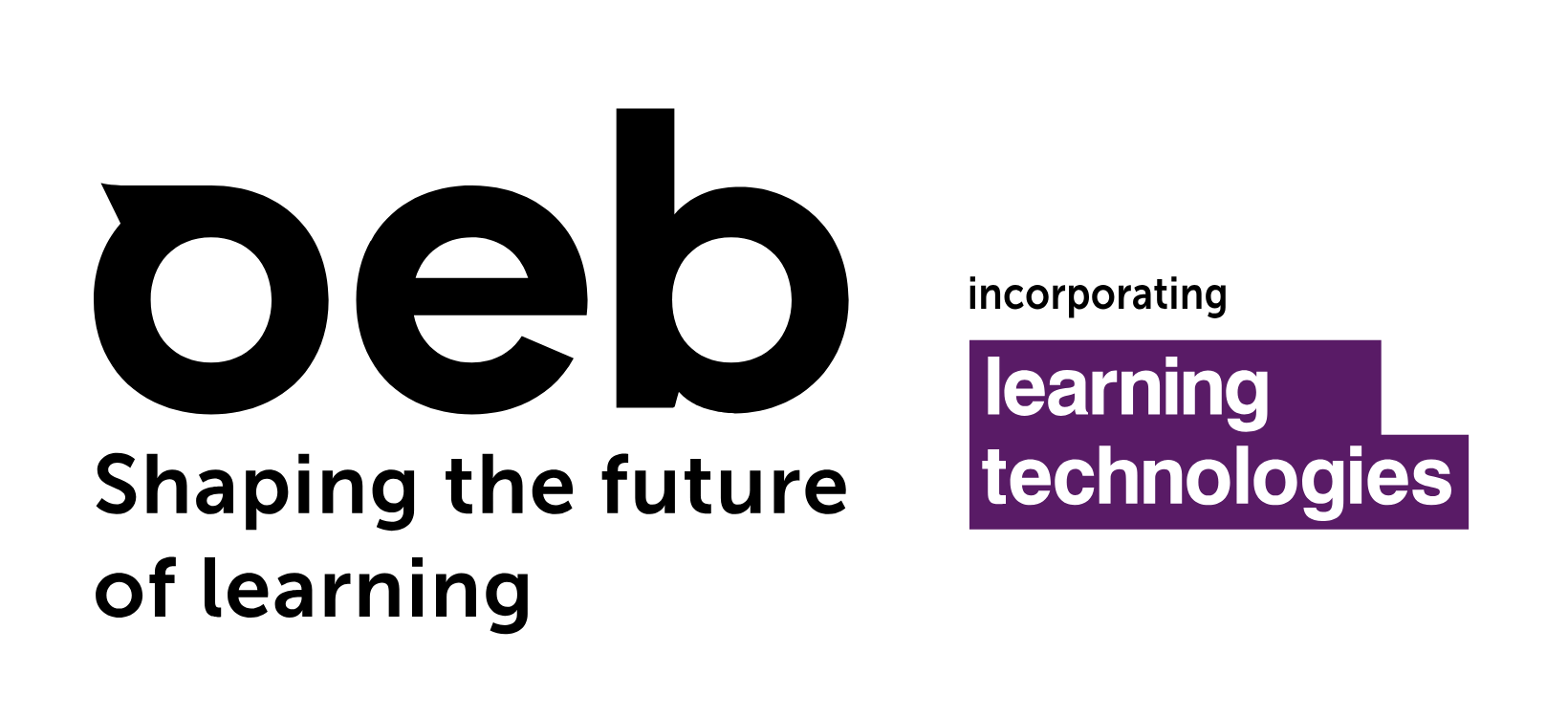Online Educa Berlin (OEB) — The Learning Futures we choose

This year's theme of Online Educa Berlin (OEB) 2023 was "The Learning Futures we choose", and it posed a pressing question:
"Will our digital development enhance human potential or eclipse it?"
Many talks, conversations and debates have addressed this question about rapidly evolving technology and the importance of aligning it with human goals.

What are the human goals?
While learning goals vary between countries, organisations and communities, digital transformation, artificial intelligence, lifelong learning and skills development for the future versus sustainable education made up last week the majority of sessions at this education conference.
Abstract Technology’s aim of participating in this year's OEB Conference as an exhibitor was not only to be present to promoting our services regarding the Open edX LMS solution, but also to discuss the future of learning with visitors, exhibitors and speakers during the conference days. With 2.000+ international learning professionals from 76 countries, 70+ exhibitors and sponsors and 100+ conference sessions, the OEB conference offers a unique and important format to navigate the education market with excellent experts at the highest level.
 Image source: OEB 2023
Image source: OEB 2023
One of the most significant statements was in our opinion the one from Luciano Floridi (Professor of Cognitive Science and Founding Director of the Digital Ethics Center at Yale University in the United States) who performed the Keynote on the second conference day, Thursday, 23rd of November 2023.
Luciano Floridi examines under the title “Living in the Infosphere”, the profound implications of a hyper-connected reality on education, ethics, and human equity. Let's take a quick look to his concept of “Paideia” and “Nomos”. The concepts of Paideia and Nomos have historical and philosophical significance, particularly in the context of education. These terms are rooted in ancient Greek thought and have been explored by various philosophers.
- Paideia is a Greek term that encompasses the process of educating or raising a child. It goes beyond mere instruction and includes the holistic development of an individual, comprising intellectual, moral, and physical aspects. Paideia emphasizes a well-rounded education that nurtures not only cognitive abilities but also virtues, character, and civic engagement. It seeks to cultivate individuals who are not just knowledgeable, but also ethical and responsible members of society. It should be better explained as a modern concept of ‘citizenship’. Paideia often includes exposure to the arts, literature, and philosophical ideas. It values the development of critical thinking, creativity, and an appreciation for culture and humanistic ideals.
- Nomos, in Greek philosophy, refers to law or custom. It represents the social and moral order that governs human behaviour within a community. Nomos is essential for maintaining social harmony and order. It provides a framework for individuals to understand their roles and responsibilities within a society. Nomos includes not only legal regulations but also ethical norms. Nomos is closely tied to the idea of civic education, emphasizing the importance of preparing individuals to actively participate in the civic life of their communities (what we define today as ‘active citizenship’).
Floridi’s thoughts focused on the definition that Paideia and Nomos are the Foundations for Education in the 21st century. Paideia is the complementary element to Nomos because it is essential to build individuals who have a critical sense of 1. ) who they are and 2.) who they want to be and 3.) what society they can build.
Plato also wrote this message back in Ancient Greece "A knower is the man who knows how to ask and answer questions" (Plato, Cratylus), the right questions possibly and not the wrong ones: but at least questioning!
Floridi also pointed out to the audience that we need critical thinking, that we need to continue to do so, but what kind of knowledge? The kind of knowledge we need is the one where there is a connection between producing and knowing how to use the produced object, which is in this case information. We call ourselves an information society.

Source: Luciano Floridi, OEB 2023
Floridi's final point about critical thinking in our information society is as important as it is simple: Here it is:
Look, our situation can be compared to a single engine airplane with a pilot, and you are the passenger sitting in the back.
Pilot: “oh, don't worry I know how to use this airplane. There's an automatic pilot”
You: “…and if it breaks down?”
Pilot: “I have no idea”
You: “…if we land in the wrong place?”
Pilot: “ Oh sorry”
You: “… if the automatic pilot decides to go in a different direction?”
Pilot: “Is not up to me”
You: “… so who are you ?”
Pilot: “I'm just a user “
You: “No, Thank’s!”
You can watch an extract of his speech here:
Read more about the speaker:
Contact us for Open edX LMS development support:
- Open edX LMS Improves your teaching and learner outcomes
- Open edX LMS is Open source and accessible
- Open edX LMS is flexible, customisable and feature rich
- Open edX LMS is secure and scalable
- Open edX LMS is translated in more than +120 languages
- Open edX LMs is easy to integrate

